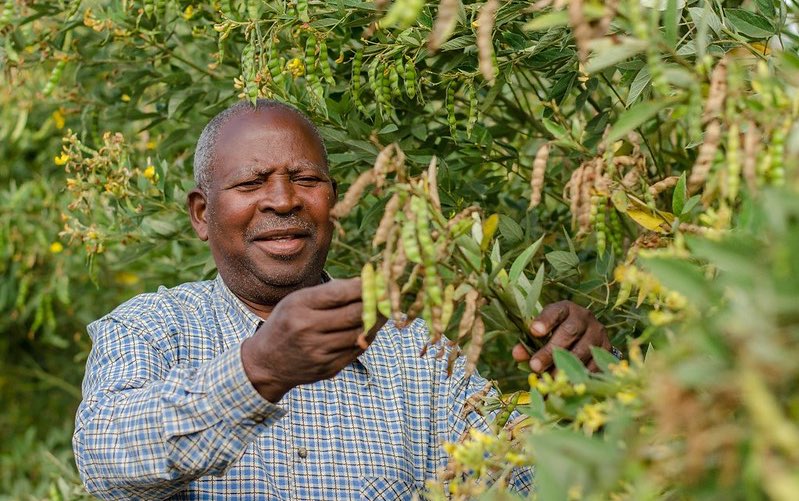Most of Malawi’s 4 million households still rely primarily on rainfed crop production with limited use of agricultural inputs for their food needs. But subsistence farming is failing to meet the dietary requirements of all Malawians: In recent years, several hundred thousand households annually have faced acute food insecurity. Insufficient harvests have resulted from either too little or too much rainfall and from limited use of inputs, while landholdings shrink as the population grows. Yet the country’s policy approach to food security continues to center on subsistence production.
In a new IFPRI book, Disentangling Food Security from Subsistence Agriculture in Malawi, we describe a development vision for Malawi in which everyone has access to the food they require, without having to rely on their own household harvests. Drawing on a range of conceptual approaches, the book explores data on food security, production, and agricultural markets in Malawi as well as past and current policies to propose a promising path toward rural economic transformation.
The best way to assure food security in Malawi is good employment, whether within or outside of farming, that provides a stable income sufficient to obtain food in significantly more reliable markets. Achieving this vision involves three fundamental changes:
- Support for a significantly more diversified and productive agriculture sector centered on commercially-oriented smallholder farmers.
- Strengthened food markets that draw upon both domestic and regional sources to supply the food needs of Malawian consumers.
- Rural economic transformation that broadly raises incomes and increases rural nonfarm employment, which is propelled by the increased agricultural productivity of commercially-oriented smallholder household farmers.
Such a transformation will require simultaneously addressing farm production and markets. The dominant subsistence orientation of smallholder farming households and weak agricultural markets are two halves of the same vicious cycle: Farmers with surpluses cannot be certain they will find buyers who will pay them a reasonable price; consumers cannot be certain they will find in the market the food they require at a price they can afford. Together, these risks depress trade volumes, undermine market development, and reinforce the subsistence orientation of farming households. As a result, only a small share of the total production of food crops in Malawi is sold.
On the production side, farming households would shift from producing for food self-sufficiency to engaging with market-centered and more specialized farming systems. In doing so, these households will supply markets with the products they can most efficiently and profitably produce.
Providing support to raise the productivity of commercially-oriented smallholders—such as through more effective extension of high productivity agricultural technologies or increased access to finance or timely market information—will increase their incomes and, thus, their consumption of locally produced goods and services, particularly labor-intensive and generally non-transportable goods and services. This, in turn, will increase the incomes of their neighbors who produce these goods and services, thus diffusing the economic gains made by the commercially-oriented smallholders to other rural households. Over time, many of their neighbors will transition from pursuing subsistence-oriented agricultural livelihoods to become specialized in nonfarm livelihoods.
To serve as the foundation for the nation’s food security, Malawi’s markets will require predictable government interventions when necessary, supportive policies for agricultural market traders, and increased integration into regional markets. A deep pool of traders and processers operating in Malawi’s markets will ensure that farmers can find a market for their produce. Correspondingly, traders should be able to draw upon expanded sources of supply, primarily through increased domestic production, but also from farmers across eastern and southern Africa.
The principal measure of the success of such efforts will be whether consumers find that they can go to the market at any time and purchase all the food their households need at an acceptable price. Without reliable markets, subsistence farming, even at low levels of productivity, will remain the main livelihood strategy for many poor Malawian households, and few will see their welfare improve.
Implementing an approach centered on commercially-oriented smallholder farming households will be challenging—recent surveys show there are currently relatively few households that are able to consistently rely on markets for their food needs. Nevertheless, with effective market development and sustained increases in agricultural productivity, commercially oriented smallholders could grow as a share of rural households. At the same time, with stronger markets and more reliable access to food through them, other rural households will see many of the barriers and risks to adoption of nonagricultural livelihoods become less constraining. Policymakers in Malawi must act boldly to pursue such a vision and secure the country’s food security.
While this book directly addresses the situation in Malawi, many other countries face similar challenges —particularly in Africa but also worldwide . Those with rural populations reliant upon their own low productivity farming to meet their food needs will also find the discussion in this book to be instructive, with relevant lessons that can be adapted to their own contexts. For Malawi and many other developing countries currently dependent upon subsistence farming to meet their food requirements, the deepening of markets and the expansion of the local economy are critical for improving access to food and the livelihoods for all households.
Todd Benson is a Senior Research Fellow with IFPRI’s Development Strategy and Governance Division.







